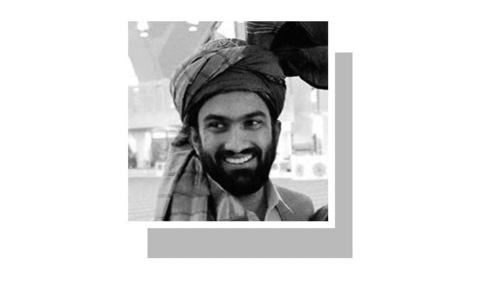The Supreme Court on Thursday adjourned a hearing of the final appeal against the execution of Asia Bibi, accused for blasphemy.
Police and troops had been stationed across Islamabad as the apex court readied to hear the appeal of Bibi who has been on death row since 2010.
One of the three-judge bench, Justice Iqbal Hameed-ur-Rehman, told the court he had to recuse himself, claiming a conflict of interest.
"I was a part of the bench that was hearing the case of Salman Taseer, and this case is related to that," he told the court. A letter was written to the chief justice to appoint another judge to the bench.
The SC did not immediately set a new date for Bibi's appeal.
In 2011, former Punjab governor Salman Taseer, who spoke out in support of Bibi, was gunned down in broad daylight in Islamabad. His assassin Mumtaz Qadri was executed earlier in 2016 after the court found him guilty of murder. Justice Rehman was chief justice on the Islamabad High Court which heard Qadri's appeal in 2011.
The allegations against Bibi date back to June 2009, when she was labouring in a field and a row broke out with some Muslim women she was working with.
Asia Bibi, accused of insulting the Prophet Mohammed (PBUH) during an argument with a Muslim woman over a bowl of water, was convicted and sentenced to death in 2010 despite her advocates maintaining her innocence and insisting the accusers held grudges against her.
She was asked to fetch water, but the Muslim women objected, saying that as a non-Muslim she was unfit to touch the water bowl.
The women went to a local cleric and accused Bibi of blasphemy against the Prophet Mohammed (PBUH), a charge punishable by death under legislation that rights groups say is routinely abused to settle personal vendettas.
Bibi's supporters maintain her innocence and insist it was a personal dispute, and the Vatican has called for her release.
But successive appeals have been rejected, and if the SC bench eventually upholds Bibi's conviction, her only recourse will be a direct appeal to the president for clemency.
If that fails, she could become the first person in Pakistan to be executed for blasphemy.
The repercussions for minorities, human rights and the blasphemy laws would be "tremendous", says Shahzad Akbar, a human rights lawyer.
Blasphemy is a hugely sensitive issue in Pakistan. Anyone even accused of insulting religion risks death at the hands of vigilantes.
Rights groups complain the controversial legislation is often abused to carry out personal vendettas, mainly against minority groups.
Observers had warned of possible violence if Bibi's conviction was overturned, with some calling the case a battle for Pakistan's soul as the state walks a line between upholding human rights and appeasing hardliners.
A senior police official told AFP that up to 3,000 security personnel had been deployed in the capital earlier Thursday.
Judges 'apprehensive'?
Zohra Yusuf, chair of the independent Human Rights Commission in Pakistan, told AFP the appeal delay was "regrettable", noting that Bibi was already being held in solitary confinement due to security concerns.
The judges may be "apprehensive", she said, adding that after the SC announced its decision to uphold Mumtaz Qadri's death sentence, justices had to sneak out the back door to the court.
"It's a sensitive case. I think they (the judges) have realised that if Asia Bibi [is] acquitted, they may be putting their own lives on the line," Yusuf said.












































